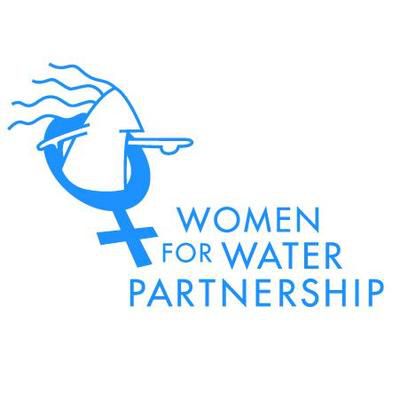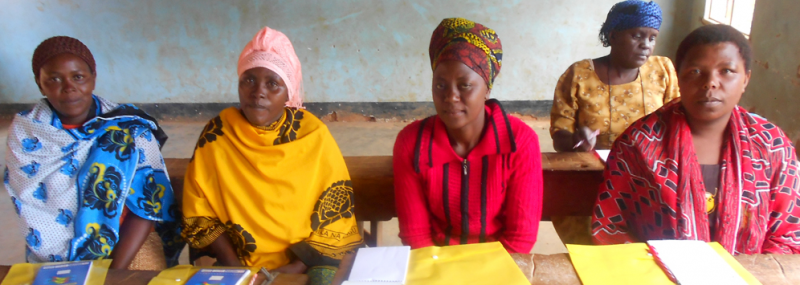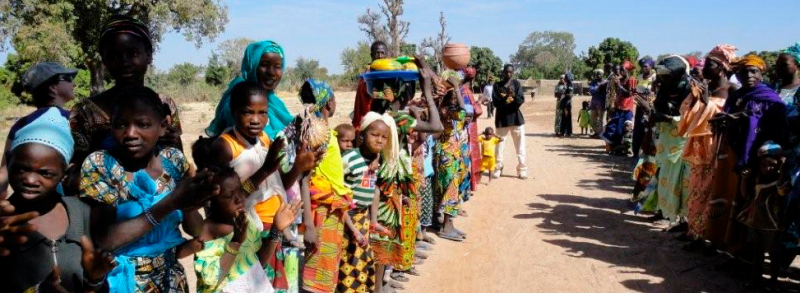Interview with Annemiek Jenniskens
Published on by Water Network Research, Official research team of The Water Network in Academic
The Water Network team had a pleasure to talk with Annemiek Jenniskens, Executive Director at Women for Water Partnership.
WfWP is a unique partnership of women’s organisations and networks, uniting women leadership. All member organisations are rooted in society and are active in the areas of water, sanitation, sustainable development and women’s participation. WfWP positions women as active leaders, partners, experts and agents of change in water. Annemiek Jenniskens has been working in the field of international co-operation for more than 25 years. We thank Annemiek Jenniskens for this amazing conversation.
Q1. Thanks for talking to us Annemiek, it would be excellent to know your journey to date as a development professional.
After graduating, I started to work at the department of Women’s Studies at the University of Wageningen in the Netherlands. It was the early eighties and Women’s studies was an entirely new venture. My next job was at the Ministry of Social Affairs and Employment, where I was responsible for public campaigns about Women’s Affairs. It was really interesting because of the wide variety of subjects such as equal rights and equal pay, sexual violence against women and affirmative action and the wide variety of organisations I worked with. I learnt a lot during the 5 years I spent at the Ministry.
Since I was born in Malawi, I always dreamt about working in developing countries. At the end of the eighties, SNV/Netherlands Development Organisation gave me that opportunity. I worked there for 24 years and started as a volunteer for the Association of Women’s Club in Zimbabwe. Later on, I worked in Benin as a programme director amongst others managing water, sanitation and hygiene projects. During the last eight years, I was one of the executive directors based in the Netherlands. It was a very interesting journey and I witnessed a lot of changes in the sector especially in terms of growth in capacity in developing countries.
In 2013, I organised a conference about Integrity in the Water Sector on behalf of the Water Integrity Network and UNESCO-IHE and since June 2014, I am the director of WfWP
Q2. What was your vision behind joining WfWP?
I am very inspired by WfWP ’s vision: a water secure world in which women are heard and empowered to exercise their full potential to achieve equitable and sustainable development.
And the same counts for the mission: to position women as active leaders, experts, partners and agents of change to realise access to safe water for all - including gender-responsive sanitation – for all use; thus contributing to all SDG’s, especially goal 5 & 6.
Q3. What is your experience so far?
I enjoy my work very much. We have sufficient challenges to crack my mind.
Q4. Do you think that women participate less in the water sector?
That depends on how you look at it:
Women and children bear the primary responsibility for water collection. They spend up to 6 hours each day collecting water. In Africa and Asia, women and children walk an average of 3.7 miles a day just to collect water. Women and girls living without a toilet spend 266 million hours each day finding a place to go. Globally, one-third of all schools lack access to safe water and sanitation, causing girls to drop out. Every 90 seconds a child dies from a water-related disease.
So how women’s life is influenced by water is enormous.
Women’s participation in the water sector is a different story. Across the globe, there are millions of water-related jobs to ensure that water is made available every day for all kind of uses. Who are the job owners: men or women?
There is hardly any research done on this subject. Insights from literature point to a clear sector divide, separating domestic from other productive uses of water. Women participate in the domestic area; in fact an extension of their domestic roles. Many programmes seek the participation of women in community based domestic water and focus on poor rural women to manage the resource. Important, yet not sufficient to get more equity in the sector as a whole.
There is limited sex-disaggregated data showing how women compare with men in leadership at various levels and subsectors of the water industry. The data which exist reveal that women are significantly underrepresented at every level and that they are notable absent at the level of international water policy decision making.
One of the very few studies about women water professionals – SaciWaters: Situational Analysis of women water professionals in south Asia (2009) - shows that there is little thought given to women who work as water professionals, their constraints and positive influences on the sector as a whole. The percentage of women in technical posts in South Asia is for example just 5%.
The reasons are not only linked to differences in educational levels between men and women, but also to values and beliefs about the position and role of women, such as the perceived ability to do field work, lack of sanitation or other facilities (pointing to an unsafe safe working environment).
In that same study, almost all women interviewed felt that their skills were highly underutilised. Young professionals spoke about their struggle to get jobs of their liking and women were kept away from any financial dealings. Most of the professionals are caught in these type of situations.
Q5. How is WfWP helping increase the women’s share in water sector?
Since its establishment in 2004, Women for Water Partnership has consistently raised the profile of women in the water and development sector, both in their professional capacity and as the major group in society.
WfWP’s mission is to position women as active leaders, experts, partners and agents of change to realise access to safe water for all - including gender-responsive sanitation – for all use; thus contributing to all SDG’s, especially goal 5 and 6.
WfWP links day-to-day practice to policy at national and international levels and vice-versa.
WfWP member organisations are mostly practitioners dealing with politically sensitive and culturally controversial issues that require a change in mindset, e.g. women being elected in governance bodies. Influencing policy and decision-making at the various levels is an intrinsic part of this work, whereby it is important to operate within the local socio-cultural context.
WfWP has significantly contributed to improving access to water, sanitation and hygiene (WaSH), through the water projects implemented by its members. During 2005-2015 WfWP members were active in around 100 countries worldwide serving almost 2 million beneficiaries, investing just over $4.7 million. Despite limited funds, WfWP’s work has resulted in impressive outcomes. Projects have led to sustainable solutions for WASH delivery; irrigation; water management; empowered women and communities; and stimulated local economic development, generating additional income streams for women and their communities. Many women have gained positions in decision-making processes.

These achievements are a direct result of WfWP’s approach seeking solutions at three levels simultaneously:
• At the global level, WfWP and its member organisations use their collective voice for women in global agenda setting and contribute to international policy development through UN and other global processes. WfWP also looks out for relapse from agreed principles.
• At the national level, WfWP capacitates and supports member organisations to effectively contribute to the development and implementation of policies and programs in their regions and countries.
• At the grassroots level, WfWP, through its member organisations and in cooperation with strategic partners, enables local women’s groups to address priority challenges in their communities related to water and sustainable development. Women groups are coached and supported to manage and supervise their own projects, lobby and advocate to influence local agenda’s and to become leaders or agents of change in their constituencies.
WfWPs success stories on sustainable solutions at all three levels are countless.
Q6. Which are the major countries where WfWP is present and have undertaken successful interventions?
We are represented in around 100 countries, so the list is very long. To mention a few: Sri Lanka, Nepal, Armenia, Bulgaria, Kenya, Uganda, Tanzania, The Netherlands, Suriname, Columbia
Q7. According to you what is the best way to ensure Gender Equality in the water sector?
See above a three-pronged approach
Q8. What changes in policy are required to make people gender-sensitized?
Especially at international level, there are many UN and other declarations enabling the full involvement of women. E.g. The central role of women in the provision, management and safeguarding of water was adopted as one of the guiding principles of Integrated Water Resource Management (IWRM) during the International Conference on Water and the Environment (ICWE) in Dublin in 1992.
Other policy frameworks are:
- The Sustainable Development Goals (2015)
- Decade for Action for Sustainable Development (2015-2025)
- The Human Right to Water and Sanitation (2010)
- Johannesburg Plan of Implementation (2002)
- Beijng Platform of Action (1995)
- Women Major Group of UNCED Agenda 21 (1992)
- The Dublin Principles (1992)
Most important is that these policies are being implemented and that there is sufficient funding for implementation!!!!
Q9. What is the principle behind “Empowerment of women and their communities through sustainable water interventions”? Do you have any case studies to share with our readers?
Water is an entry point for empowering women, girls and their organisations. WfWP uses a participatory approach and is inspired by a rights-based approach.
Lessons learnt are:
- Water security and women’s empowerment go hand-in-hand;
- A multi-stakeholder approaches essential for project success. Women and girls, but also men and boys, (local) government, private sector and other groups need to be involved in all stages to find feasible solutions, that result in affordable, effective, sustainable and community owned results;
- Women need to be included from day one in all phases of project decision-making processes.From the initial idea to start a project, to choices about investments, design, planning, implementation, monitoring, and evaluation;
- For sustainable results both ‘hardware’ and ‘software’are necessary. Software includes ownership processes, capacity development, empowerment, vocational and other training. Hardware i.e. technology and infrastructure are only sustainable if combined with software;
- Women need to be heard. Meeting the required attendance of women at important meetings is not sufficient. Their involvement needs to be meaningful. Therefore, cultural barriers need to be addressed and alternative behaviour learned (e.g. speaking and communication skills);
- While the importance of inclusion of women is increasingly included in statements at international level, these need to be translated into implementation plans at national and community level;
- Funds must be allocated to (i) facilitate the inclusion of different stakeholders, and (ii) combine both hard- and software. More process oriented funding streams are needed instead of short-term project funding. Time is needed to enable effective results.
Here we have collected several cases.

Q10. What are the new initiatives WfWP is undertaking and what is the broader vision behind them?
Since it is all about implementation of the SDG’s there are 3 things of utmost importance:
- Combine the implementation of SDG 5 (gender equity) and SDG 6 (water)
- Use the lessons learnt (see above)
- Make sure women have access to financial investments and instruments
Q11. Do you think SDG goals are achievable?
Yes, if all stakeholders prioritize them and work together.
Q12. According to you which country is making good progress in the water sector?
Since implementation started on the 1st of January 2016, it is too early to say
Q13. It is challenging for young female water professionals to work in the water sector. Would you like to address these young female water workers and give them some valuable insights?
Yes, see above question 4: Young professionals spoke about their struggle to get jobs of their liking and women were kept away from any financial dealings.
Yes, don’t give up, look for colleagues and friends to share your experiences, organise support also to increase your confidence ( “don’t think you are not yet good enough”, go for it), make sure your voice is being heard ( in a clear and charming manner). It is great to get more influence and participate on equal footing with your male colleagues !!!
Maybe our positioning statement is also helpful:
WfWP is a unique partnership of women’s organisations and networks, uniting women leadership. All member organisations are rooted in society and are active in the areas of water, sanitation, sustainable development and women’s participation. WfWP positions women as active leaders, partners, experts and agents of change in water.
WfWP links day-to-day practice to policy at national and international levels and vice-versa. The organisation is experienced, has a solid track record, has built a large and influential network throughout the world, and will contribute to implementing the Sustainable Development Goals with a focus on women and universal access to water for all, for all uses.
Read More Interviews from the 'In Conversation With' Series
by The Water Network
Media
Taxonomy
- Sanitation
- Human Rights
- Sustainability
- Management